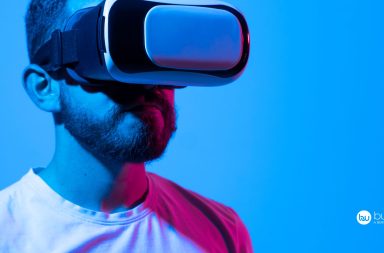Karen Taylor, Research Director of the Centre for Health Solutions at Deloitte, outlines her predictions and the evidence available today that enables her to be confident about what may happen tomorrow
In November 2017, we launched the report ‘The future awakens: Life sciences and health care predictions 2022’. Our intention was to provide an unashamedly positive and provocative view of how the world may look in 2022, if the constraints that many believe impede adoption of innovation can be overcome.
The report acknowledges the increasing pace and scale of innovation in healthcare over the past three years or so, and how new science, automation and robotics will impact the future of work. It also highlights how these developments will impact the life sciences and health care industries’ business, operating and financing models.
Here are six predictions for 2022 – both evolutionary and revolutionary
1. The quantified self is alive and well: the genome generation is more informed and engaged in managing its own health.
In 2022, individuals are better informed about their genetic profile, the diseases they have, or may develop, and the effectiveness of health interventions. People are also more engaged in improving their own health, and their expectations of health care are high for themselves and their loved ones.
2. The culture in health care is transformed by digital technologies: smart health care is delivering more cost-effective, patient-centred care.
In 2022, a growing number of healthcare services are delivered more effectively at home or in outpatient ambulatory facilities and patients with complex and acute inpatient needs are treated in ‘smart’, digitally-enabled hospitals. Clinical roles have been optimised and staff are using cognitive technologies to deliver more seamless, integrated care, designed around patients’ needs.
3. The life sciences industry is industrialised: advanced cognitive technologies have improved the productivity, speed and compliance of core processes
In 2022, pharma uses a lean operating model to generate funding for R&D and deliver more cost-effective medical innovations. The ‘industrialisation’ of pharma has led to productivity increases across functions and geographies. Companies have moved through three phases of evolution – first codifying and standardising processes, then automating them, and now deploying artificial intelligence (AI) and machine learning to increase productivity still further (Figure 3). This step change has improved compliance materially and enhanced the predictability of core processes.
4. Data is the new health care currency: AI and real-world evidence are unlocking value in health data
In 2022, health care data is a national infrastructure priority and critical business asset attracting significant funding. Real-world data (RWD) is providing the information needed to enable researchers to develop more precision medicine and clinicians to predict patients’ responses to treatments. Clinical guidelines and experiences have been turned into computer algorithms to support clinicians and payers to find the best treatments. Pharma companies are using RWD to develop better treatments, launch them faster and price them according to improvements in health outcomes.
5. The future of medicine is here and now: exponential advances in life-extending and precision therapies are improving outcomes
In 2022, insights from human genetics, precision and personalised medicine, have transformed health care, bringing value through innovative biotechnology and requiring the health system to move from looking at the average patient to looking at the individual patient. AI has revolutionised health care through mining medical records, designing treatment plans, speeding up medical imaging and drug creation. Outcomes-based payment strategies are common for treatments where patient populations and endpoints are well defined.
6. New entrants are disrupting health care: the boundaries between stakeholders have become increasingly blurred
In 2022, the health care landscape has changed significantly with non-traditional health care players using their brand, engineering expertise and knowledge of customers to disrupt the health care landscape. These new entrants have partnered with traditional providers to deliver a more customer-focused experience of health care. Many companies have realised that only by working together can they succeed, requiring new skills, behaviours and standards to be adopted in each organisation with more porous boundaries, especially around data sharing.



